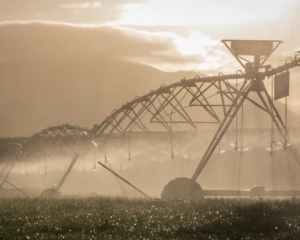
Part of VetSouth’s toolbox for staff retention and welfare is a pot of soup on the stove, along with buns and fresh fruit.
Mr Bryan said staff often started early — 3am starts were not uncommon — and they worked on through, so a pot of soup with fresh buns was ideal to ‘‘fill up, warm up and rest the feet (and mind)’’.
‘‘We know that animals are reliant on good nutrition, and so are our people,’’ Mr Bryan said.
‘‘Some warm soup and buns, or some fresh fruit is going to be one element to keep them ‘‘here for good’’.
He said attracting vets to rural practices could be challenging as about half of the graduates ultimately left the country, more than a quarter joined urban clinics, leaving less than a quarter (about 25 vets annually) for the permanent workforce in rural New Zealand.
‘‘Otago and Southland then have to be weighed up by these grads and other experienced vets from New Zealand and abroad to see if it’s right for them.
‘‘Down our way, climate and lower population can be considered a detriment for those ill-informed.
By the fourth year of study, vets choose their preference for the type of work they want to do and they had to consider whether they had an interest in and the knowledge to deal with animals of a rural community.
‘‘This is a big point, as rural vets are key cogs in the farming community, not just a service on the side,’’ he said.
‘‘After-hours in particular is a challenging part of the role and one, which is more readily managed in cities with small animal hospitals and dedicated after-hours clinics.
‘‘They experience first-hand the stress of animals and clients, and have to make the tough calls.’’
He said the weather, the payout, the media, farmers’ stress, and the cost of treatment, put farmers under pressure and it’s often the vets that ‘‘get it in the neck’’ as they are often the only people farmers see on farms in busy periods.
Mr Bryan said the MPI bonding scheme was a great incentive for young vets challenged with large student debt.
That combined with building a strong ‘‘here for good’’ culture, clear career professional development and pathways towards their goals.
‘‘It’s a competitive market, vets are in high demand and the key is respecting their profession, first and foremost focusing on happy healthy animals (and clients).’’
He said vets as a group had a significantly higher suicide rate than the rest of the population, particularly young women, who were eight times more likely to commit suicide than non vets of the same age and gender; and older men.
‘‘It’s complex, but there’s no doubt that the profession has more than its share of mental health challenges.
‘‘In saying this vets are the most genuine of people, always looking to get the best and fairest outcome. ‘‘We just need to encourage them to take time for themselves.’’














